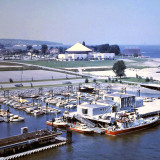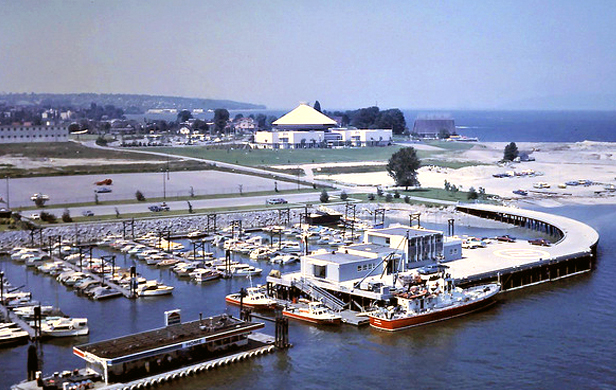“The Development of Nothern Gateway is job one.”
– Christy Clark shorty after becoming Premier
“With respect to northern gateway, let me say our government is pro pipeline,” says the Premier of British Columbia.
Christy Clark made this claim in question period last week. She did so while berating the NDP for opposing the project on the grounds that they are doing so prematurely and without adequate information to make an informed opinion.
This is the definitive moment that marks the turning point in the now long standing myth that the BC liberals are “neutral” or have chosen to take “no position” on the Northern Gateway Pipeline. And it was done with the stunning Liberal hypocrisy we have been forced to endure for too long.
By now anyone following the Joint Review Panel on the Northern Gateway Project is well aware that the process is deeply flawed, politically driven and resembles more of a dog and pony show than anything remotely close to an extensive review of the pertinent environmental and economic issues.
The BC Liberals have proven that they do support pipelines, no matter what the cost, just as the Premier admitted in Question Period. They have done so for a long time and with little if any understanding of the far reaching economic and environmental ramifications. And the only reason they cling to a false front of neutrality is to maintain the now long standing cover up of their complicity in advancing pipeline projects.
The myth that they maintain a neutral stance dominates the mainstream barrage of coverage. This is done in order to provide the political escape hatch this government may require in order to cling to power. It also is done to perpetuate the “mass deception” governments, oil and media have undertaken, according to Robyn Allan former ICBC CEO, who has worked to uncover the misdeeds of government and industry boosters.
The time for the Liberal myth of ‘neutrality’ and so called ‘respect for public processes’ has come to an end. This will happen in large part due to the effort of concerned and informed citizens who, at great risk, have not only fully explored the issues but have also uncovered reams of data supporting their claims including unseemly bilateral agreements, extensive economic analysis and strategic components of the proposals that have been kept from the public. The now retired former CEO of ICBC Robyn Allan outlines some of these major concerns in this presentation and her recent open letter to the Premier.
Most recently Ms. Allan has completed a report entitled “Proposed Pipeline and Tanker Spill Risk for BC.” In this exhaustive report Robyn shines the light on how these pipeline proposals have been designed to “low ball” the pipeline capacity in favour of adding additional capacity in the future. This strategy allows for a 60% increase in the daily flow of diluted bitumen in the case of Enbridge’s proposal and in so doing does an end run on exhaustive environmental assessments that would be required had they originally proposed the full capacity. The following is from her report:
There is no reason to believe that the true environmental risk represented by the Northern Gateway Project is being—or ever will be—adequately addressed. The current JRP process has excluded a significant portion of the project’s actual capacity and its implications for pipeline spill and marine spill, while in the future, there is no statutory obligation to do so. All indications from the Federal government suggests there will be no political will either.
Ms. Allan goes on to demand that BC regain its statutory right to a final decision on the Northern Gateway Project:
The government of British Columbia [needs] to take action and protect BC’s statutory right for final decision for this project by removing Northern Gateway from the Equivalency Agreement with
the NEB.
As a result of the fine work of Ms. Allan and others like her, the national and provincial mainstream media has been forced to cover the duplicitous nature of the Liberal stickhandling of this issue despite having moved mountains to maintain the delicate mythology that the liberals have “not taken a position on the issue.” And the blogosphere has lit up (too many to link to) revealing this documentation that proves the Liberals are not only far from neutral but have taken outstanding measures in order to ensure that the pipeline projects proceed virtually unhindered by issues in the best economic interest of British Columbians and our environment.
People concerned about the future of our Province should view Robyn’s presentation and support her recent request for Cabinet to revoke the nearly two year old Equivalency Agreement which diminishes our ability to influence major projects in our Province. Also take the time to read her most recent report and follow up on her request to bring these issues to the attention of the Premier.
And, while we are at it we should encourage the environment Minister to explain why he delegated his Ministerial powers as outlined in section 27 of the act, onto senior staff which enabled the “Equivalency Agreement”, that forfeits our sovereign ability to properly review, participate and influence not just the Northern Gateway Project but four major proposed infrastructure developments. All of which will alter the very fabric of our Province and set BC on a course to a very bleak future. The relevant act clearly outlines the Minister has the right to enter into these agreements, not staff. It seems this was done in order to avoid political scrutiny while greasing the skids for major projects not necessarily in the best interest of British Columbians.
Furthermore, the Equivalency Agreement was absolutely unnecessary as there already was a long-standing agreement in place that would have allowed for Joint Review Panels to be established in order to prevent duplication. Indeed this was the entire purpose of this long standing, renewable agreement. The Minister should explain why he delegated his power to staff to establish the Equivalency Agreement, under what direction and for what purposes given the fact it was entirely unnecessary in order to “avoid duplication” or “streamline” the already entrenched agreement.
Equivalency Agreements were at one time an administrative tool used exclusively by Alberta to allow for that Province to undertake reviews and avoid duplication by the Federal Government. In recent highly contentious legislation, the use of Equivalency Agreements was forwarded by the Harper government to remove the Federal review components on so called “minor projects” making the Provinces sole arbiters. Given that Taseko’s Fish Lake project was rejected by the Federal process but passed the provincial assessment we gain insight into why Harper made these adjustments.
However, in the case of the Equivalency Agreement in British Columbia the exact opposite is occurring and the Province is being cut out of the process in order “to avoid duplication.” This stands in stark contrast to both the traditional application of these agreements and how they are being currently utilized by this government. Our environment Minister needs to clarify why. Otherwise, it seems that not only are they using it to remove the Province from the equation but they are doing so against the grain of the common application of these agreements, while at the same time ignoring the act which dictates the Minister makes these arrangements, not staff.
We should also be asking our Environment Minister when and where the required public notice for this Equivalency Agreement occurred, because in order for an Equivalency Agreement to be enabled it requires notice and a 60 day time period for input on behalf of stakeholders and interested participants.Furthermore, after the 60 day period is complete, the agreement is supposed to be published by the Minister, or put in the Gazette. None of which occurred.
These striking anomalies just scratch the surface of the evidence that the BC Liberals have had an agenda for many years which involved a multi-faceted approach designed to set the legal and administrative stage for the successful development of exhaustive infrastructure projects in order to export Alberta’s Dirty Dilbit. It was done so by intentionally removing the capacity of British Columbian stakeholders to influence the decision making and outcomes while ensuring we had no significant leverage or capacity to negotiate beneficial economic arrangements.
Its time to end the deception and mythology surrounding the future of British Columbia and the oil and gas agenda and start planning a future that benefits all British Columbians.
Kevin Logan was a Ministerial Assistant to former Premier and Minister of Energy Mines and Northern Development Dan Miller.







